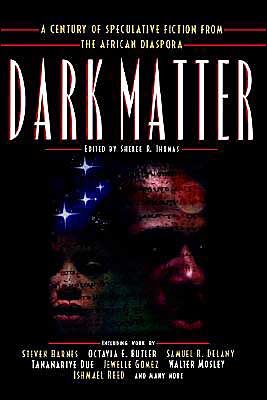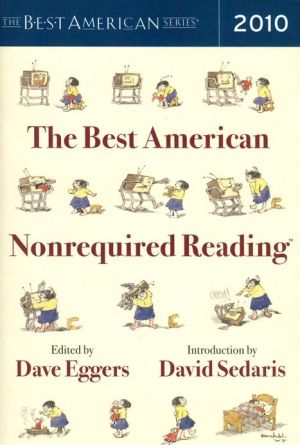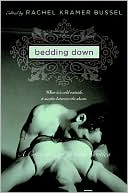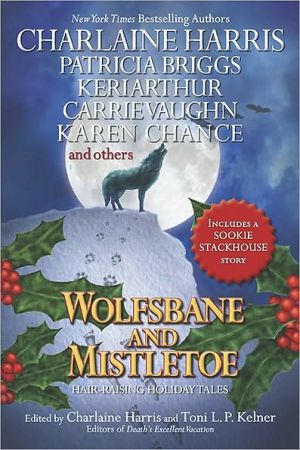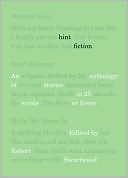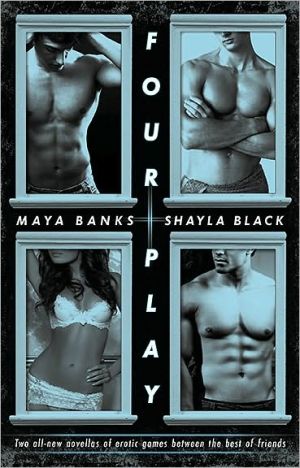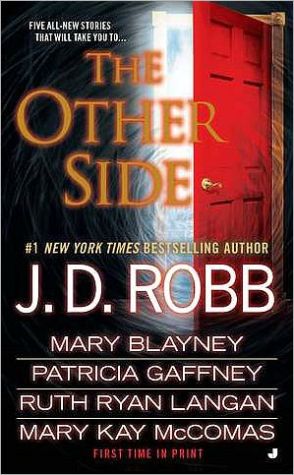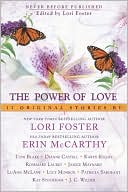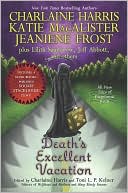Dark Matter: A Century of Speculative Fiction from the African Diaspora
This volume introduces black science fiction, fantasy, and speculative fiction writers to the generations of readers who have not had the chance to explore the scope and diversity among African-American writers.
Search in google:
Whether you view it as a landmark of black literature or as a stirring collection of brilliant short stories and essays, Dark Matter is a fantasy landmark. Contributors include famed sci-fi author Samuel R. Delany and Octavia E. Butler as well as surprise entries Amiri Baraka, Ishmael Reed, and W.E.B. Du Bois.Black Issues Book ReviewLike the Sputnik launch of 1957, the publication of this anthology expands the frontiers of speculative fiction into a new dimension. In her introduction, Thomas develops an intriguing metaphor of blackness as a kind of Dark Matter an invisible mass which exerts a gravitational pull on the entire genre. Her selections for the anthology span the twentieth century, dispelling the notion that black writers are newcomers to the field. This initial reading of a literary phenomenon heretofore rendered almost invisible promises to enhance understanding and appreciation not only of these unique voices in African Diasporan literature, but also of the speculative fiction genre as a whole.
Dark Matter\ Reading the Bones \ \ Warner Aspect\ Copyright © 2004 Sheree R. Thomas\ All right reserved.\ ISBN: 0-446-52860-9 \ \ \ \ Introduction\ Since ancient times, oracles and diviners have combined their collected wisdom with close observation of the world. Occupying a unique position in society and often living in the margins, these diviners attempted to gain insight into their personal circumstances and improve the lives of their communities. Whether they chose to cast bones and shells, palm nuts gathered in gourd and calabash, read footprints in the dust, or rely upon a complex system of calculations rooted in sacred works such as the Path of Odu or the I Ching, they drew upon cultural traditions handed down through generations. \ And these seemingly disparate practices of ancient cultures that spanned throughout Africa, Greece, Etruria, China, Tibet, and India shared one thing in common: the desire to change and impact the future.\ This desire to alter one's path, to understand how things have come to pass, is one of our most basic human impulses, and over the centuries it has inspired and informed much of our creative art forms, including our literature. Speculative fiction writers share this in common with diviners, attempting to gain insight by examining the unique circumstances of our world and questioning it in ways that challenge and critique our fundamental beliefs, social conventions, and assumptions. Their work shares an affinity with these ancient traditions of divination in their desire to gaze into the future in order to anticipate developments, whether social, environmental, or technological in nature, to caution or offer counsel and direction, to identify and expose injustice, to heal, to protect. These various impulses are embodied and expressed in stories that often cut to the quick, through our assumptions to reveal deeper truths, borne in blood and carved in bone.\ Dark Matter: Reading the Bones presents works of speculative fiction and nonfiction by twenty-eight writers of the African diaspora. In compiling this collection, I chose not to force the work into a preconceived political, social, or moral framework. Rather, I was interested in providing a more open structure to allow for the juxtaposition of unique and individual voices, ideas, styles, themes, and aesthetics from new and emerging black writers as well as acclaimed writers whose work offers bold and fresh insights for readers. Like the diverse communities and personal histories from which they hail, black writers are not a monolithic community. Their interests are manifold, their expressions and personal rhythms as wide and varied as the land in which their ancestors first gave voice. Their work reflects a vision that is two-headed in view and intent, looking forward as much as looking back, like the diviners of old-and those still among us-to cast a reading, a new vision that illuminates as it engages. I hope that this work acts as a catalyst for discussion and inspires others to explore black contributions to speculative fiction.\ The oral tradition is central to Afrodiasporic writing and storytelling, and so I chose to begin with ihsan bracy's retelling of an old African-American folktale, "ibo landing," a work that is as much a testimony of the courage and sacrifice of a people as it is a praisesong to those who did not "fly away" and walk back across the waters to the land of their ancestors. This work, like Charles R. Saunders's "Yahimba's Choice," is an original exploration of the complexity of challenging and questioning ancient traditions such as the practice of female "modification"; it is also historically linked to a legacy of conscious resistance and the African tradition of call-and-response.\ The new voices of this collection, notably emerging speculative fiction writers such as Cherene Sherrard, Nnedi Okorafor-Mbachu, and Ibi Aanu Zoboi, as well as the acclaimed author Nalo Hopkinson, draw upon African and Afro-Caribbean legend and lore to craft tales that are as instructive as they are evocative, even as they deliver powerful critiques, but the tall tales of Douglas Kearney and Tye-himba Jess, that evoke the folkloric trickster Kwaku Anansi, "the Keeper of the Stories," Peter Parker, and a legendary soothsayer from ChiTown called Voodoo Vincent, remind us that the ability to laugh, to "signify," is an ancient skill, a vital strategy for black survival.\ Black writers are now, as ever, it seems, struggling as all artists between the political and personal landscapes in their work, and this individual, creative struggle is a strong and recurring theme throughout Dark Matter: Reading the Bones. Three stories, "Whispers in the Dark" by Walter Mosley, "Whipping Boy" by Pam Noles, and "Aftermoon" by Tananarive Due, are strong, literal interpretations of this contemporary and historic struggle, both questioning how individuals- indeed, black communities, whether rural or urban-can hold on to self and their intellectual integrity in a world that is often intensely judgmental, hostile, and threatening, while W. E. B. Du Bois's "Jesus Christ in Texas" and Henry Dumas's "Will the Circle Be Unbroken?" offer a dark and haunting meditation on the spiritual and social implications for American society in particular. Historically, "new world" Afrodiasporic writing generally has been overtly political, with little reference to the erotic. Kiini Ibura Salaam's "Desire" and David Findlay's "Recovery from a Fall" draw the African aesthetic through an experimental fabric, creating a new veil of lust and lore and longing, while Kevin Brockenbrough's "Cause Harlem Needs Heroes" and John Cooley's "The Binary" offer tough, hard-edged characters who give as much as they get from the world.\ In Jill Robinson's "BLACKout" reparations move from contested theory to a complex reality as Charles Johnson's "Sweet Dreams" and Wanda Coleman's "Buying Primo Time" cast us into a future where even our dreams have become commodities and the cost of living is a price few can afford to pay, while Nisi Shawl's "Maggies" and Samuel R. Delany's "Corona" are two compelling works that reveal that navigating childhood can be a difficult journey, no matter where in the universe the young traveler calls home. Andrea Hairston's "Mindscape" contemplates a future where a spiritual outcast and an "ethnic throwback" must help rechart a world thrown off its course, while Kalamu ya Salaam brings us full circle in his exploration of how a group of black scientists and revolutionaries might use time travel in his story, "Trance."\ In addition to these stories, Jewelle Gomez offers a transcript of a historic meeting of some of our most influential black speculative fiction writers, and Carol Cooper and Nnedi Okorafor-Mbachu discuss the works of Andre Norton and the late Virginia Hamilton, who made significant contributions to speculative fiction and young adult literature, respectively, in the course of their careers.\ In Dark Matter: Reading the Bones, these innovative writers present speculative fiction that reaches deep into Afrodiasporic traditions and push through to new forms. Their words and stories explore the languages of love and lore, oppression and abuse, identity and community, revelations and new frontiers. By bringing together this shared history and the rich diversity of these writers and their visions, I hope Reading the Bones captures your imagination and offers a memorable window into a vital period in the evolution of speculative fiction. Sheree Renee Thomas New York City, 2003\ (Continues...)\ \ \ \ \ Excerpted from Dark Matter Copyright © 2004 by Sheree R. Thomas. Excerpted by permission.\ All rights reserved. No part of this excerpt may be reproduced or reprinted without permission in writing from the publisher.\ Excerpts are provided by Dial-A-Book Inc. solely for the personal use of visitors to this web site. \ \
Introduction: Looking for the InvisibleixFictionSister Llith1The Comet5Chicago 192719Black No More (excerpt from the novel)35Separation anxiety51Tasting Songs69Can You Wear My Eyes86Like Daughter91Greedy Choke Puppy103Rhythm Travel113Buddy Bolden116Aye, and Gomorrah ...124Ganger (Ball Lightning)134The Becoming152The Goophered Grapevine158The Evening and the Morning and the Night171Twice, at Once, Separated197Gimmile's Songs210At the Huts of Ajala226The Woman in the Wall235Ark of Bones260Butta's Backyard Barbecue273Future Christmas (excerpt from the novel The Terrible Twos)275At Life's Limits290The African Origins of UFOs (excerpt from the novel)312The Astral Visitor Delta Blues319The Space Traders326The Pretended356Hussy Strutt372EssaysRacism and Science Fiction383Why Blacks Should Read (and Write) Science Fiction398Black to the Future405Yet Do I Wonder408The Monophobic Response415Contributors417Copyrights and Permissions424Acknowledgments426
\ Publishers WeeklyAfter the spectacular Dark Matter (2000), Thomas offers something of a mixed bag in her second anthology of speculative fiction from the African diaspora. Of the stories set during the days of slavery, ihsan bracy's "ibo landing" proves that stylization of subject matter can be more powerful than historical fidelity. The shimmering, brutal outlines created by such simple sentences as "each in their own way understood the distance. they would never again be home" stay with the reader for a long time. By contrast, the weight of research muffles the emotional impact of a story like Cherene Sherrard's "The Quality of Sand." Similarly, Charles R. Sanders's "Yahimba's Choice" seems written by an anthropologist studying a distant culture, the story unable to move past surface ritual and wooden dialogue. The strongest entry is Kuni Ibura Salaam's "Desire," an experimental retelling of a folktale that's wonderfully fresh, with exquisite detail: "Quashe's back formed one gleaming stretch of reptile skin. Her torso, neck, and arms were honey-amber, human-soft skin moist with river dew." This story will probably appear in at least one year's best collection. Other stories of note include Pam Noles's "Whipping Boy" and Tananarive Due's "Aftermoon." Solid reprints from Samuel R. Delaney and W.E.B. Du Bois, among others, round out the volume, along with several essays of varying quality. Agent, Marie Dutton Brown. (Jan. 2) Copyright 2003 Reed Business Information.\ \ \ \ \ Library JournalUnlike the powerful and necessary Dark Matter: A Century of Speculative Fiction from the African Diaspora, this follow-up anthology focuses almost exclusively on contemporary "speculative fiction"-an umbrella term that covers sf, fantasy, horror, and other hybrid genres-by writers of African descent. Unfortunately, the result is a mixed bag. The best work is by Samuel R. Delany ("Corona"), Nisi Shawl ("Maggies"), and Kalamu ya Salaam ("Trance"). Also included are short essays on Virginia Hamilton and Andre Norton and a transcript of a Q&A session with writers like Delany, Octavia Butler, and Steven Barnes, among others. Recommended for public libraries, especially those with an interest in African American literature.-Roger A. Berger, Everett Community Coll., WA Copyright 2003 Reed Business Information.\ \
